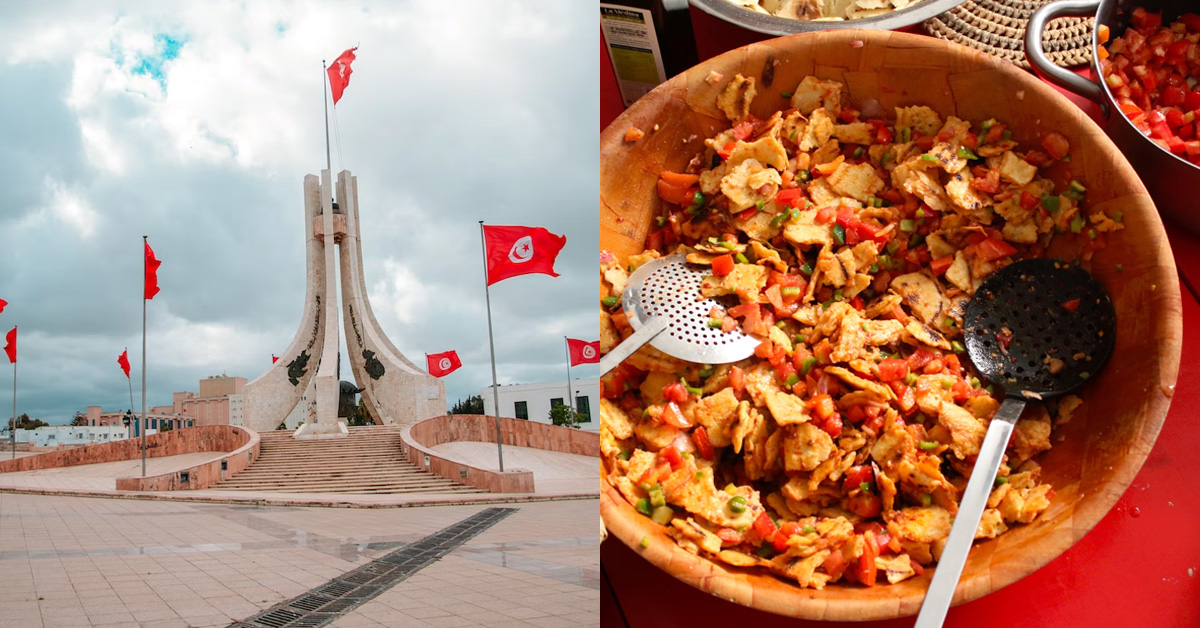Tunisian cuisine is a blend of Mediterranean and North African flavors, with influences from French, Turkish, and Italian cuisine. It is known for its use of spices, herbs, and fresh ingredients, as well as its bold and flavorful dishes.
Tunisian food is a reflection of the country’s rich history and diverse cultural influences, and it is a true delight for food lovers. From hearty stews and couscous dishes to savory pastries and sweet desserts, Tunisian cuisine offers a wide range of delicious and unique flavors that are sure to satisfy any palate.
Tunisian cuisine halal or not?
Is Tunisian food halal?
Yes, Tunisian food is generally halal as the majority of the population is Muslim and follows halal dietary laws.
However, it is always recommended to check with the restaurant or food provider to ensure that the food is prepared and served according to halal standards.
What kind of food do Tunisian eat?
Tunisian cuisine is a blend of Mediterranean and North African flavors, with influences from French, Turkish, and Italian cuisine. Some popular Tunisian dishes include:
- Couscous: A staple dish made from semolina grains, vegetables, and meat or fish.
- Brik: A crispy pastry filled with egg, tuna, or meat.
- Shakshuka: A dish of eggs poached in a spicy tomato sauce.
- Lablabi: A chickpea soup with bread, garlic, and harissa.
- Mechouia: A salad made from grilled vegetables, such as peppers, tomatoes, and onions.
- Merguez: Spicy lamb or beef sausages.
- Ojja: A spicy stew made with eggs, tomatoes, and peppers.
- Makroudh: A sweet pastry filled with dates and honey.
- Harissa: A spicy paste made from chili peppers, garlic, and olive oil, used as a condiment or seasoning.
- Mint tea: A popular drink served with fresh mint leaves and sugar.
How can you tell if the food is halal in Tunisia?
To determine if the food is halal in Tunisia, you can look for the following:
- Halal certification: Look for a halal certification label or sign on the packaging or in the restaurant.
- Ask the vendor: Ask the vendor or restaurant staff if the food is halal.
- Check the ingredients: Check the ingredients list for any non-halal ingredients such as pork or alcohol.
- Observe the preparation: Observe the preparation of the food to ensure that it is not contaminated with non-halal ingredients.
- Look for Muslim-owned establishments: Look for Muslim-owned establishments as they are more likely to serve halal food.
Is it hard to find halal food in Tunisia?
Tunisia is a predominantly Muslim country, and halal food is widely available. Most restaurants and food establishments in Tunisia serve halal food, and there are also many halal food options available in supermarkets and local markets.
However, it is always advisable to confirm the halal status of the food before consuming it.
Is Tunisian food healthy?
Tunisian cuisine is generally considered healthy as it is based on fresh ingredients such as vegetables, legumes, and seafood. Tunisian dishes are often seasoned with herbs and spices, which are known for their health benefits.
However, some traditional Tunisian dishes may be high in fat and calories, such as brik and couscous with meat. It is important to consume Tunisian food in moderation and balance it with a healthy lifestyle.
What is Tunisian food similar to?
Tunisian food is similar to other North African and Mediterranean cuisines, such as Moroccan, Algerian, and Libyan cuisine. It also has influences from Ottoman and French cuisine.
Steps to find halal food in Tunisia
Here are some general steps to find halal food in Tunisia:
- Look for halal certification: Check if the restaurant or food establishment has a halal certification from a recognized Islamic organization. This certification ensures that the food is prepared according to Islamic dietary laws.
- Ask locals: Ask locals or your hotel staff for recommendations on halal restaurants or food options in the area. They may be able to provide you with some good suggestions.
- Check the menu: Look for menu items that are labeled as halal or ask the staff if they have any halal options available.
- Avoid non-halal ingredients: Be aware of non-halal ingredients such as pork, alcohol, and gelatin, which are not allowed in Islamic dietary laws.
- Use halal food apps: There are several halal food apps available that can help you find halal restaurants and food options in Tunisia. Some popular ones include Zabihah and HalalTrip.
- Visit halal markets: If you prefer to cook your own food, visit halal markets in Tunisia to purchase halal meat and other ingredients.
Remember, it’s always important to do your own research and verify the halal status of the food before consuming it.

